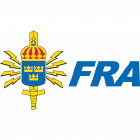ConferenceSeptember 11-12
The main conference is two days of IT security presentations. Talks are highly technical and research-driven, not sales pitches.
Community EventSeptember 10
The half-day Community Event is free to attend even without a ticket, no registration of any kind needed. Come and watch talks and mingle with the community!
Call for PapersJanuary 3 - August 1
The CFP for SEC-T 2025 is open, so if you have anything to share with the community make sure to send in your submission!
We are grateful to our sponsors for their support


















